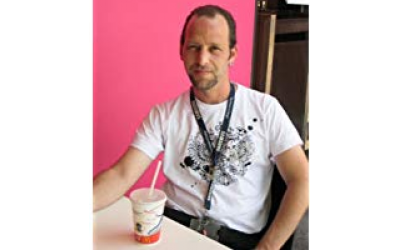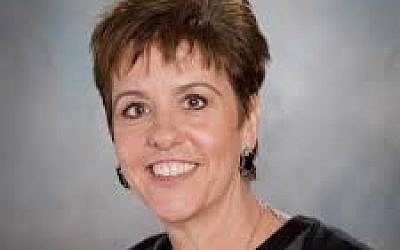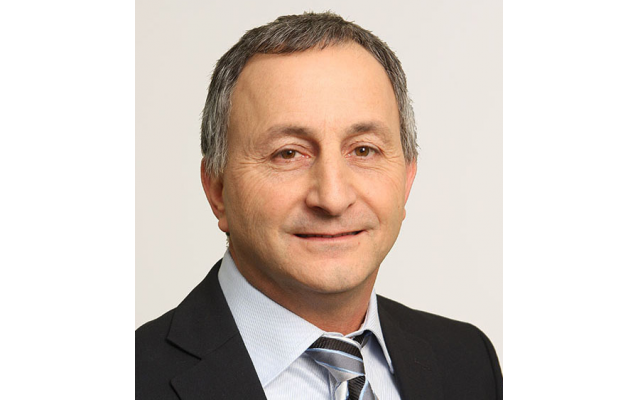Connecting Atlanta and Israel, One Innovation at a Time
From cyber security to medical technology, Israeli businesses flocked to the Atlanta tech scene this year.
It was a banner year for the America Israel Business Connector known as Conexx, the Southeast’s biggest relationship booster with Israel. The organization worked with 100 Israeli companies in 2018 to increase economic development, promote products and identify new markets. From cyber security to medical technology, Israeli businesses flocked to the Atlanta tech scene this year.
Two companies in particular, Cyber 2.0 and Dune Medical, were major standouts, according to Conexx President Guy Tessler.
Coming to Atlanta

Ready for a new market, but unsure how to break into the United States, executives of Tel Aviv-based Cyber 2.0 attended a cyber conference in Washington, D.C., several months ago.
The company produces an impenetrable software to isolate and stop cyberattacks.
“Delegates from every state were telling us, ‘Come to our state,’” said Sneer Rozenfeld, Cyber 2.0 sales vice president. “We met senators and diplomats who wanted to help us recruit for a U.S. office.”
Metro Atlanta Chamber of Commerce and Conexx were inviting and “hungry” for Cyber 2.0’s business. It was Southern hospitality that won over the company, which attended Cyber Week at Ponce City Market in October and sealed the deal. Atlanta is set to be its next location.
“They made us feel welcome,” Rozenfeld said of Conexx. “They promised to work with us step-by-step, to recruit people and open an office in Midtown. They showed us around Atlanta.”
A flight attendant who has traveled the world, Rozenfeld added, “I’ve been a lot of places and Atlanta is wonderful. I walked all around to get to know the city on foot. People are warm and it’s a humble city, not like New York.”
CEO and founder Hertzel Ozer explained how the business began. He sought top-notch security for Hot Television Network in Israel, one of the country’s largest telecommunication providers. He wanted a guarantee, with 100 percent certainty, that his network could not be hacked.
Until a few years ago, technology defense systems were based on biological models, similar to how a human body is infected, identifies the foreign object and attacks the disease. This model causes vulnerability to new attacks, and systems get hacked again and again.
“You can take kids to get a shot against the flu, but next year, you have to get another shot. The flu changes biologically every year and the virus is one step ahead of the human body,” Rozenfeld said.
Ozer engaged Erez Kaplan, chief technology officer, and the pair began mapping a new technology based on math instead of biology. Cyber 2.0 was formed, the company secured nine patents and developers started making software. The company formed in 2015 and completed software testing in 2017.
In collaboration with the University of North Georgia and Georgia Tech Research Institute, Cyber 2.0 is hosting an open challenge to hack its site. Hackers from across the region plan to descend on the city on Feb. 14, 2019, for a chance at $100,000.
Celebrating One Year in the Area

Israeli-owned Dune Medical Devices built two new facilities in metro Atlanta in the latter half of 2017. Specializing in oncology devices, the company immediately increased its leadership team and expanded advocacy and legislative efforts.
Dune uses proprietary technology, “Radio-Frequency Spectroscopy to identify cancerous tissue in real time,” enabling a doctor to take immediate action.
In Georgia, Dune is working with Margie Singleton, a Savannah breast cancer survivor-turned-advocate, to pass a law that mammography reports include information about breast density, one of the most common reasons for failure of cancer detection. This is law in 36 states; in Georgia, Margie’s Law will not come to Congress before 2019.
Dune CEO Lori Chmura was recognized by the Atlanta Business Chronicle as a 2018 Health Care Heroes finalist for healthcare innovator and researcher. Chmura is a native Georgian and former intensive care unit nurse.
“As the CEO, my job and my role is to meet with physicians, patients, advocacy groups, the Food and Drug Administration, research and development engineers” as well as investors, she said.
Dune was named one of the 2018 Top 10 Innovative Companies by the Technology Association of Georgia, and received Best Overall honors.
“These awards are given to an elite group of companies whose products and solutions are not only changing their respective industries, but also putting Georgia on the map as a state where technology innovation can thrive,” Larry Williams, president and CEO of TAG, said in a news release earlier this year.
Conexx is constantly searching for more companies like Dune to do business in the Southeast. Its latest trip to Israel focused on medical technology.
On Dec. 5, Conexx departed from Hartsfield-Jackson Atlanta International Airport for its third and final flight to Israel in 2018. Tessler said more than 25 businesspeople visited Israeli companies in fields including cyber security and finance.




comments